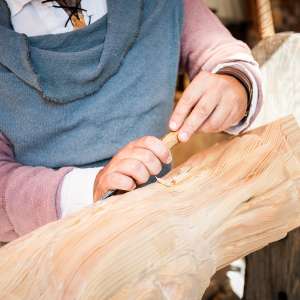From choosing the right type of paint, thinners, and varnish to preparing the work area and knowing how to safely erect a scaffold tower, being a professional painter requires a specific set of skills.

To obtain these skills, one needs hundreds of hours of practice. And even the most amiable of customers are not willing to put their money and walls on the line to help you learn your trade unattended.
So, the natural first step for the uninitiated painter is to start a painting apprenticeship. But where do you start?
While the details differ depending on the regulations where you live, the following blog offers a general guide on how to become an apprentice painter.
Ensure you are eligible
While becoming an apprentice is the first step to beginning a painter job with no experience, you will need to ensure you are eligible to apply. Most apprenticeship programs typically require the applicant to be at least 18 years old, having a high school diploma or a GED.
As painting is a job that requires a fair amount of exertion, the applicant will also need to be physically fit enough to take on the role.
Apply for an apprenticeship
To apply for your apprenticeship, reach out to your local contractor associations, labor unions or state labor departments. Once you’ve found an apprenticeship provider, you will need to follow their individual prompts – which could involve an interview – to land yourself a job.
These programs typically require the application to partake in full-time work for three to four years. Some apprenticeships require a certification component to pass. This will often include classroom training, which typically requires apprentices to attend once a week and pass an exam.
While you do get paid as an apprentice, it is at a cheaper rate than a professional painter to compensate for your lack of experience. To find out the rate in your local area, visit Payscale.com.
On the job training
The best part about being an apprentice is that you will get first-hand experience from a professional painter. This mentor will show you the ropes teaching you the correct methods to prepare surfaces, mix and match paints, use industry-specific equipment safely and do everything else you need to become a professional in your trade.
As you build your skills overtime, you might also want to consider specializing in a particular area of painting. From industrial painting and construction, to working in factories or even applying decorative finishes as an artisan painter, there are many ways you can shape your career trajectory once you have to necessary core skills.
Become a professional painter
After completing your apprenticeship training and deciding your specialty, you will then be on your way to becoming a professional painter. Your next choice will be to decide whether you want to work for an established painting business or start a business on your own.
While working for an established company will further develop your skills in an environment where your responsibility is limited to your role, starting a small business can often broaden your skillset and open up a whole new range of possibilities.
Working for yourself can be a difficult yet rewarding experience, and if you do decide to be your own boss it’s important to consider reaching out for help for skills that you may be lacking.
After years of practice, your painting skills may be top notch, but perhaps your marketing or accounting skills are underdeveloped. Thankfully, there are people who do provide expertise in these areas and reaching out to them can make your business more effective.
Similarly, getting the right business insurance is just as essential. There is no use painting yourself in a corner and exposing yourself to unnecessary risk.
Running a painting business insurance is often challenging. Luckily with BizInsure, your business insurance doesn’t have to be. Through the BizInsure platform you can compare quotes for painters from leading insurers all online and receive coverage information instantly.
It’ll be one less thing you’ll have to worry about as a small business owner, so you can get back to doing what you do best!



